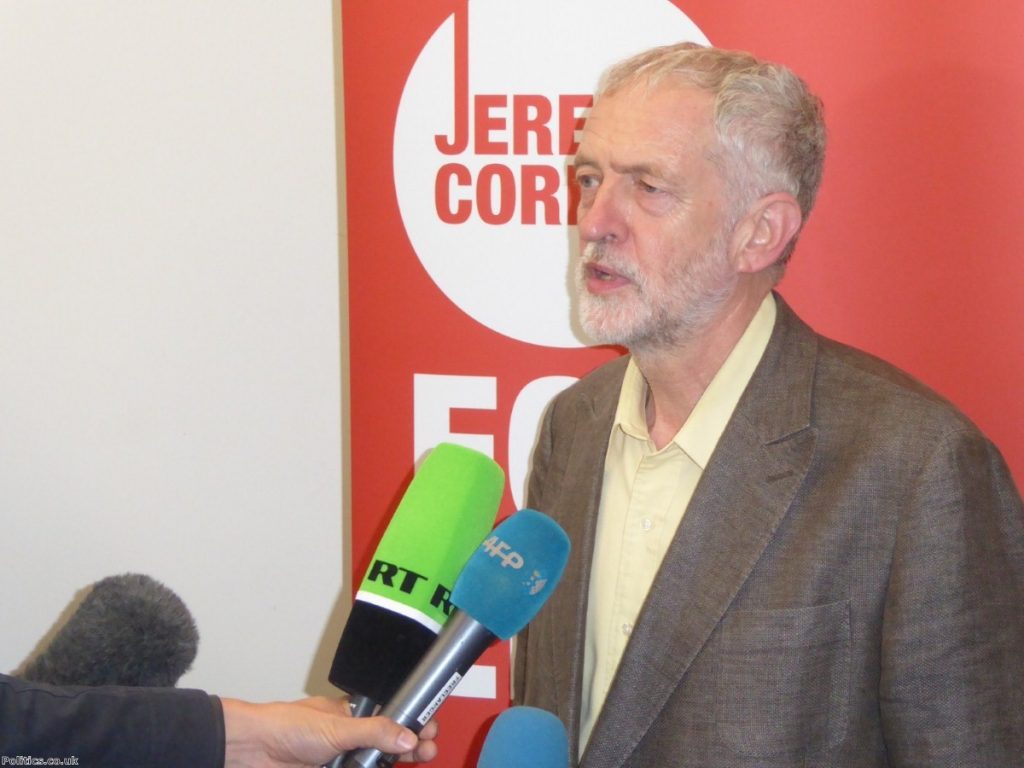Jeremy Corbyn’s naive foreign policy would put Europe in danger
By Nathan Debrowski
Jeremy Corbyn is in many ways riding the same progressive, anti-austerity wave that has carried politicians such as Bernie Sanders, Syriza and Podemos to the top of the polls. But even if he has energised and excited his party's base like few other British politicians, is the country (and the world) really ready for his rock-the-boat style of policy-making?
While many voters and pundits have focused on Corbyn’s economic policies, few have ventured to apply the same effort to his foreign policy and it’s there that my own nascent Corbynmania ground to a screeching halt.
Recently, Corbyn said he believed it wrong for Poland to have been allowed into NATO. Understandably his comments that the country “should have gone down the road Ukraine went in 1990” received a particularly negative reaction. According to Corbyn, NATO is a Cold War institution that should have been torn down in conjunction with the Warsaw Pact in 1990. In an article for the Stop War Coalition published in March 2014 Corbyn writes, "NATO has sought to expand since the end of the Cold War. It has increased its military capability and expenditure. It operates way beyond its original 1948 area and its attempt to encircle Russia is one of the big threats of our time." Among those offended by the comments was Polish Foreign Minister Radoslaw Sikorski who snapped back on Twitter saying, “charming that Jeremy Corbyn would want Poland to have the security of Ukraine. Hope he proves as electable as Michael Foot.”


Such international online snark is just one example of Corbyn’s increasingly troubling foreign policy platform. In one sense, Corbyn's pro-Russian stance is hardly surprising considering his penchant for looking at where the US stands in a conflict and resolutely taking the opposite side. Public research suggests that this strategy appeals highly to his base, with one poll finding that 51% of Corbyn supporters believe that America is “the greatest single threat to world peace”. Corbyn's rebellious politics, along with his frequent appearances on Russia's English language propaganda channel RT, have him marked firmly in the camp of the contrarians.
This antagonistic relationship with the USA, borne from America’s own aggressive foreign policy, can nevertheless lead to dangerous results, especially if it means getting in bed with a volatile and duplicitous Kremlin.
A goodwill towards Russia has the dangerous effect of blinding Corbyn's foreign policy within the European community, as evidenced by his troubling stance on NATO. Corbyn's previously-expressed desire to pull the UK out of NATO is by no means an appropriate response to concerns about NATO expansion. However, it is Ukraine that provides the litmus test for Corbyn’s murky foreign policy, as the Labour hopeful seems to have few qualms about handing it over to Russia.
Corbyn has said, “We should oppose any foreign military intervention in Ukraine, as that would only succeed in that country reliving its traumatic past as a battleground where Russia and Western Europe vie for supremacy.” But once again Corbyn's attempts at taking a progressive line result in trading the realities on the ground with wishful thinking.
Ukraine is a nation traditionally divided between its pro-West and pro-East factions, or what the late Robert Conquest called a “captive state”. Half of the country has historically been pro-West, while the other half favours close ties with Moscow. As such, alluding that Ukraine is not an independent country, but part of Russia’s backyard is not just wrong but dismissive of the battle of ideas raging in the country. Even if Corbyn is right in his anti-interventionist stance, London should voice its support for the Kiev leadership when warranted, as well as condemning injustices when they happen.
For example, basic human compassion should be enough to press Ukraine’s western-looking leaders to respect fundamental human rights and freedoms. Reports of political witch-hunts and gagging of opposition voices have made headlines recently. The government tried unsuccessfully over the past year to close down the Inter TV channel (owned by leader of the opposition bloc Serhiy Lyovochkin and Dmitry Firtash). In addition, at least 10 opposition voices, including prominent journalist Oles Buzyna, died in mysterious circumstances in Ukraine. Faced with Prime Minister Arseniy Yatesniuk’s cratering approval ratings, the rumour mill went into overdrive as to who will replace the bespectacled economist. While nobody has thrown their hat officially in the ring, reports have named both Mikheil Saakashvili and President of the Employers Federation of Ukraine Dmitry Firtash as potential successors.
No matter the outcome, Ukraine’s political transition is heading straight towards choppy waters, highlighting once more the battle of ideas raging within its borders. And while Corbyn's desire to avoid conflict makes sense, simply acquiescing to Russia in order to not appear imperialistic is ultimately irresponsible. Corbyn seems bent on fighting the wrong battles in his foreign policy.
It's admirable to not want to push Western values through military force, but that shouldn't mean turning a blind eye to injustices simply because they happen on foreign soil.
Nathan Dabrowski is an eastern European correspondent based in Krakow
The opinions in Politics.co.uk's Comment and Analysis section are those of the author and are no reflection of the views of the website or its owners









